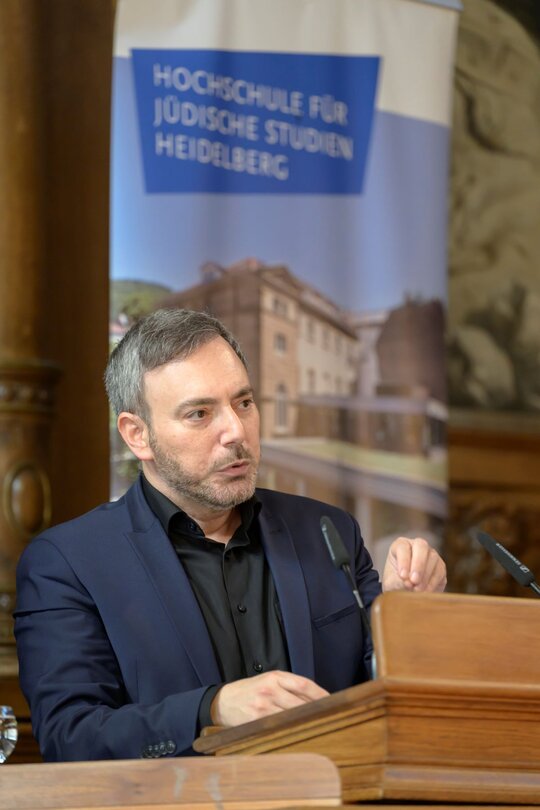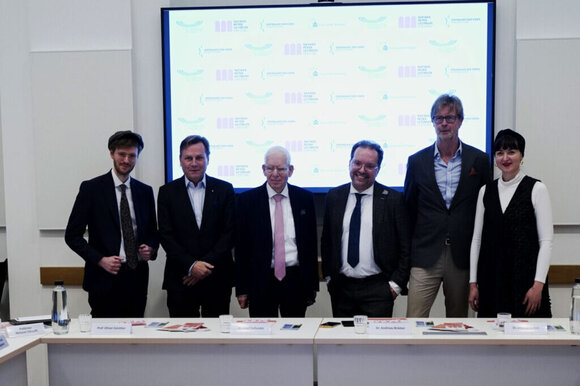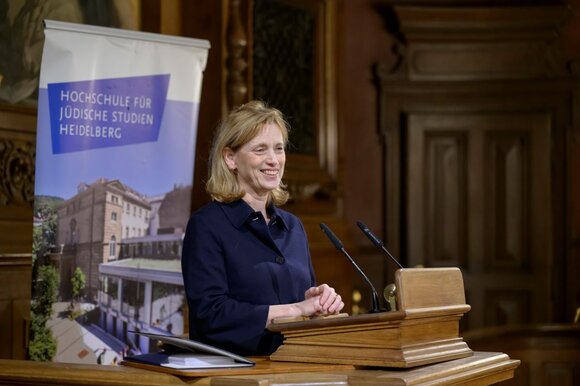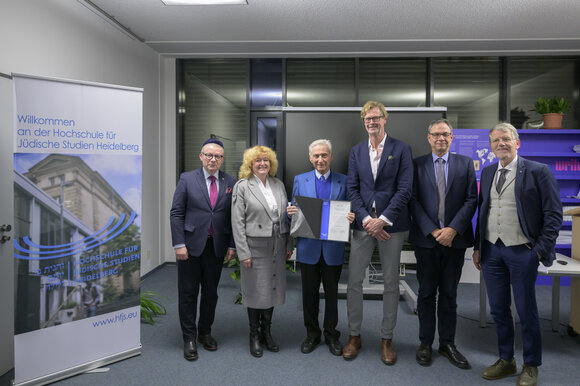Despite the oppressive heat, around 50 enthusiastic listeners gathered in the Alte Aula on Thursday, June 12, to experience Dr. Sergey Lagodinsky's Heidelberg University lecture. The MEP, deputy parliamentary group leader and high-profile spokesperson for legal and foreign policy for the Greens, did not promise a straightforward evening, but a politically explosive one."
Right from the start, Lagodinsky made it clear that his speech would always be a reflection of the current political situation - the originally announced title was therefore a waste of time. Instead, the evening revolved around cultures of remembrance, their changes and their significance - not only in Germany, but also in a European context.
Lagodinsky explained in no uncertain terms: "The German Republic of Remembrance is over." After the Holocaust and World War II, Germany had developed an identity that was not based on glory but on remorse - a radical attempt to be "unsparing towards itself". While other nations glorify their history, Germany's awareness of its own "collective murderous energy" was formative. "Only those who have experienced themselves as monsters know how gigantic the reappraisal must be in order to control themselves in the future," he summed up.
A central topic was the German-Israeli relationship. Lagodinsky recalled Angela Merkel's famous formula that Israel's security is part of Germany's reason of state - a phrase that is often abbreviated and exaggerated today. In fact, according to Lagodinsky, Merkel only emphasized two self-evident facts: Germany's historical responsibility and the non-negotiability of Israel's security. However, the subsequent "sacralization and scandalization" of this statement had led to Germany being expected to show unconditional solidarity with Israel - an expectation that Lagodinsky described as "unrealistic and dangerous". The demand to accept every political decision made by Israel without criticism undermines the foundation of the special relationship between the two countries.
Lagodinsky painted a picture of a changing European morality: the time of coming to terms with the past seems to be over, instead new threats such as Putin's war of aggression against Ukraine are taking center stage. The culture of remembrance, once a source of identity, is now perceived by many - especially people with a history of migration - as elitist and exclusive. "We have not translated our memories well enough into other languages, other perspectives and other geographies," warned Lagodinsky. Migration and the digitalization of debates are bringing new perspectives and conflicts into the country. Although hostility towards Israel is also increasing with migration, this should not be an excuse to deny protection to those seeking it. On the contrary, it is important to include more people and actively promote empathy.
Lagodinsky emphatically warned against a creeping decoupling of history and responsibility: although interest in the Nazi era is unbroken, for many people the connection with their own responsibility has faded. "The nexus between history and Germany's role and responsibility is something that is no longer present or desired by more than half of the population," is his sobering conclusion.
In the end, Lagodinsky's appeal remains: the culture of remembrance must not be abandoned. It must change, face up to new realities and draw responsibility from the diverse histories and biographies - for an open, solidary and sustainable society.





